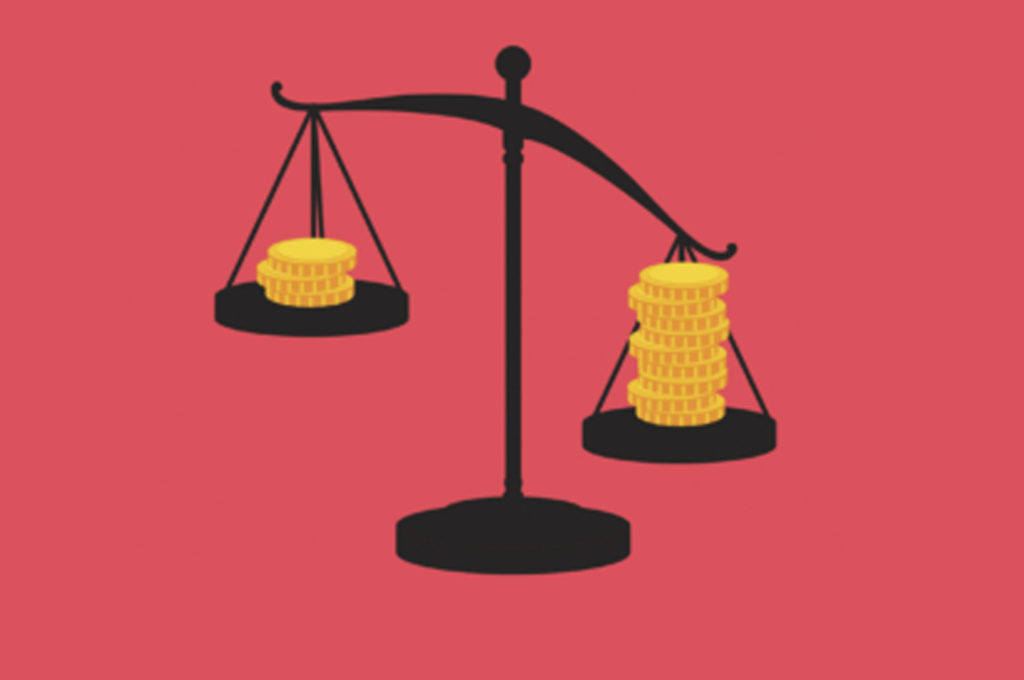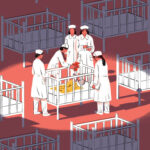
What was missing in the economic theory that lead to the financial crisis in 2008-09? This was the first question Drennan want to answer in this book. His thesis is that income inequality plays a role in the lead-up to the financial crisis by maintaining consumption through surging household debt. The second question he asks was ‘Why the economist get it wrong?’. Drennan’s answer to the second question is that the consumption theory of neo-classical economics does not include income distribution to their economic theory.
To prove his points, Drennan brought forward econometric evidence to link income inequality with the financial crisis. He also used various set of data to show that many people resort to debt to maintain their consumption, meaning that people borrow more money to buy the necessities to maintain their lifestyle. He also present historical data as evidence to show that the 2008-09 crisis is not something new and has happen before.
Drennan also noted that the two feature that were on the rise leading to financial crash were the stagnant growth of income and income inequality – although this two do not necessarily occur together. Although Drennan try to back his argument with data and statistics, layman reader will not find this useful, understandable, and almost definitely lost in the process.
What are the possible causes of rising income inequality? Asked Drennan. Economist pointed out that one of the candidates is globalization, but he cast doubt to this theory as other countries such as Japan, Germany, and France were exposed with the same globalization forces but does not produce higher income inequality. Other candidate favoured by economist to explain income inequality is skill-biased technological change (SBTC). This include higher order specialization, for example box mover can learn to operate forklift easily, but factory worker might have problems changing their career to higher-order specialization such as a programmer. Some economist listed SBTC as the cause of the rising income inequality.
But all these candidates do not give the whole picture. The more compelling cause, is the institutional structure. Drennan noted that as the economy turn from manufacturing to service economy, the labor union diminished. This is because the service sector does not have a strong labor union traditionally. The structure of the law also plays important roles in containing the labor union force, without them worker have a lower protection and had to accept lower wages as they don’t have any bargaining power.
Then there is government intervention. Contrary to free-market ideology, that income stabilize in its current level due to rigorous market forces, there are many government legislation interferences that favors the rich and enlarge the income inequality gap. Among the law includes treatment to corporate stock option award, access to bankruptcy, copyright and patent protection, to name a few. Various conservative think-tanks served as an advocacy lobby to ensure government keep policies for the benefit of the rich, their objective is rent-seeking – spending money not on production of product or service but to take advantage and enlarge their own economic pie at the expense of someone else’s share.
After presenting his theoretical background, Drennan continue with the data to back his theory. Although he emphasized in the introduction that the role of the data presentation is ‘not to obscure the fact’, he did just that for a layman reader as they lost in the jargon terms and various graph. Drennan drew from Federal Reserve’s data that there are a huge build-up of debt-to-income ratio for the bottom 95 percent whilst consumption remains more or less the same, which means that consumer are shifting to debt to maintain their consumption, this lead to financial burst eventually. These consumptions include shelter, health care, and education which are a necessary expenditure which cannot be postponed, such as taking a vacation trip.
In the book, Drennan also help explain economic principle such as the Pareto efficiency principle which stated that “any change that make one people better off, without making any other worse off, is an improvement”. This principle is a fundamental tenet of neoclassical economics, which describe the gain of top 1% of the income distribution as Pareto efficient. This is one reason why economist turn away from income inequality.
Other theory, such as Kuznets’s inverted-U hypothesis, also made economist less worry on the income inequality and its effect. Drawing from various historical data from numerous countries, Kuznets argued that the economic shift from agriculture to industrialization will lead to the rise of income inequality for some time, but as countries develop, democracy expands and more protection were given to labor causing the inequality to fall back. He also discussed Arthur Okun’s tradeoff theory although Okun provided no strong evidence.
In analyzing the data, Drennan also drew his criticism towards Milton Friedman model for theory of consumption, noting that the theory does not true for the period 1984-2007 and for the early twentieth century. He went further to underline the basic flaw of Friedman, Modigliani, and Brumberg’s model which become the mainstream theory for consumption, the models devoid of motive and proclivities, whereas in real life human behavior play an important role in their daily choices and consumption.
In his final chapter Drennan drew attention that this crash has happen before, and in his conclusion, he argue for the need to drop traditional economic theory that did not stood the empirical test from the data. Unless we take into account other element such as ‘behavior’ in our economic theory, we will be chasing unrealistic economic development using unrealistic theory.
Related Posts
Author of several books including Berfikir Tentang Pemikiran (2018), Lalang di Lautan Ideologi (2022), Dua Sayap Ilmu (2023), Resistance Sudah Berbunga (2024), Intelektual Yang Membosankan (2024), Homo Historikus (2024), DemokRasisma (2025), dan Dari Orientalisma Hingga ke Genosida (2025). Fathi write from his home at Sungai Petani, Kedah. He like to read, write and sleep.





